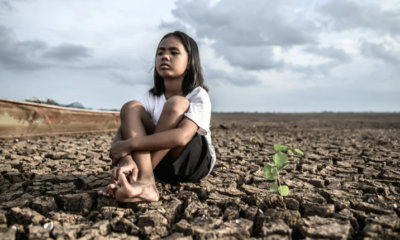Cop27
Climate-Security Nexus and the Need for a Holistic Approach

By Salma Sakr
Although most pronounced in its capacity to severely affect the availability of natural and economic resources along with food security, to undermine livelihoods, and to increase waves of mass displacement; climate change has a complex impact on the onset of violent conflicts, which is called the ‘climate-security nexus’.
Having direct human security repercussions that through time turn into indirect traditional security ramifications, climate change is a threat-multiplier that does not only aggravate economic and societal facets of our lives, but also exacerbates inter-communal tensions until they escalate into higher rates of intrastate conflicts along with regional spillover impacts that destabilizes the geopolitical landscape.
Compounded by a lack of national development policies, inadequate practices of local governance and the failure of applied conflict-resolution mechanisms are a vicious cycle that begins with climatic impacts, progresses through conflicts and culminates in internal and regional destabilization. The cycle repeats itself through the confluence of climate change and armed conflicts.
Climate change thus has to be addressed through a holistic interdisciplinary security approach. In other words, national and human security implications, development and good governance policies, as well as risk management practices shall be taken into account while integrating an innovative principle entitled ‘the Responsibility to Prepare, Prevent and Protect (R2PPP)’.
As a reliable mechanism to create a robust international system in anticipation of a more hazardous, but more firmly foreseeable future; R2PPP enables using advanced technological and scientific tools to define potential global threats. It also helps international institutions to construct a prevention action plan through development policies and good governance applications.
This necessitates strengthening climate-resilience and financing endeavors, and urges the international community to coordinate action and consolidate efforts to protect the populations in climate change hotspots from eruption of conflicts or relapse into them. It is hoped that the COP27 discussions will pave the way for such innovative and effective applications that our world really needs.












